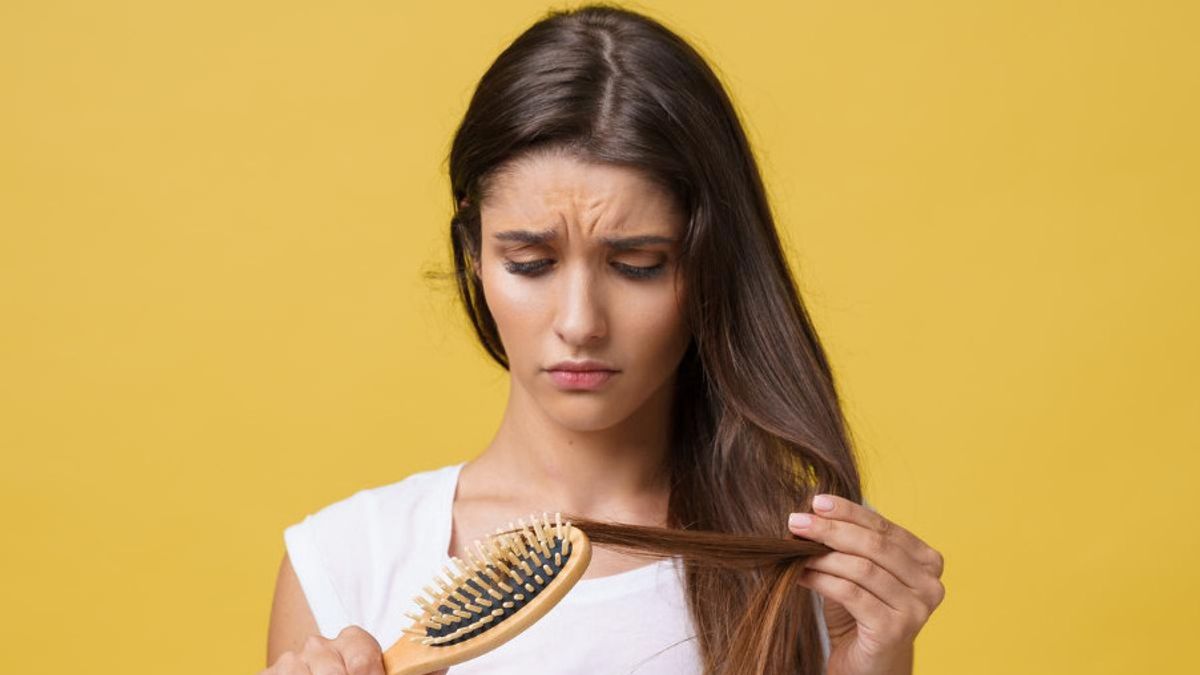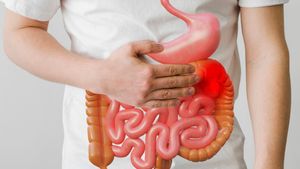YOGYAKARTA Hair loss is a problem that needs to be addressed immediately. For women, severe hair loss often occurs in certain phases in their life. As explained below, women during childbirth and breastfeeding also have the potential to experience hair loss. In addition, here is a list of causes of severe hair loss in women.
Alopecia androgenetic is a medical term for the pattern of male or female. This condition is also called alopecia herediter, where it is common to cause hair loss.
Alopecia androgenetics is genetic. Men with this condition tend to lose hair from temples and crowns of the head. In women with alopecia androgenetics, hair usually becomes thinner across the head and is more likely to occur with a person's age. In some cases it can start at any time after maturity. But many women experience it after menopause.
Women may experience severe hair loss after giving birth. This is due to a decrease in estrogen levels. This type of hair loss is a temporary condition and usually recovers within one year or sooner.
There is a phase in growth to hair loss. Hair follicles drive hair out and cause it to grow during the anagen phase. Hair growth slows down during the catagen phase, and natural hair loss begins in the telogen phase and then increases in the exogenous phase.
Telogen efluvium is a condition in which hair remains in phase. This causes more hair to fall out than usual. Some of the possible causes of efluvium telogen include childbirth, surgery, severe stress, rapid weight loss, thyroid condition, and taking certain drugs.
Alopecia areata is an autoimmune condition that causes hair to fall out suddenly. The immune system attacks hair follicles, along with other healthy body parts.
Hair from the scalp, as well as eyebrows and eyelashes, can fall out in small pieces. If a person experiences this condition, they should contact a doctor. Doctors can recommend a corticosteroid injection into the scalp or prescribing other drugs to help hair grow back.
Alopecia traffic is hair loss due to pulling hair into a tight hairstyle, which causes it to break and fall out. Hair styles associated with this condition include buns or hair tied with tight horsetails, braids, and extension hair.
If alopecia continues, a person may experience hair loss and hair running low. Avoiding strict hairstyles will usually prevent further damage.
Certain drugs have side effects that can cause hair loss. Examples of these drugs include several types of acne, anti herbal medicine, antidepressants, cholesterol reduction drugs, drugs that contain hormones, thyroid drugs.
If someone thinks hair loss may be caused by a drug, they should consult a doctor for examination. Doctors may reduce doses or replace different prescription drugs.
SEE ALSO:
A person may experience hair loss when using birth control pills. In a number of cases, hair loss occurs for a few weeks or months after they stop taking birth control pills. If you take birth control pills, you need to choose the type that has a low androgen index. This can help lower the risk of hair loss. Other forms of contraception that affect hormones, such as implants and skin coyo, can also cause hair loss.
Nutrition deficiency can cause hair to fall out. Extreme diets that are too low in certain proteins or vitamins, such as iron, can sometimes cause severe hair loss. One has to contact a doctor to undergo a blood test to check if they have a nutritional deficiency that can cause their hair to fall out. Doctors may suggest changing diets and supplements to overcome nutritional deficiencies.
That's why hair loss is severe for women. To overcome hair loss, it is important to check the cause first. Then ask for the best recommendation from a doctor or professional to deal with it.
The English, Chinese, Japanese, Arabic, and French versions are automatically generated by the AI. So there may still be inaccuracies in translating, please always see Indonesian as our main language. (system supported by DigitalSiber.id)














